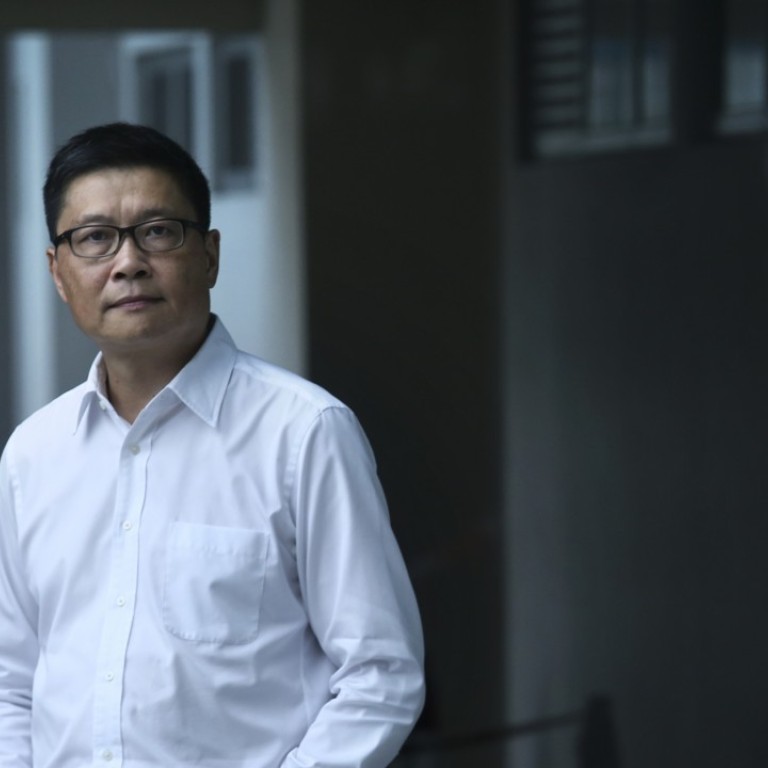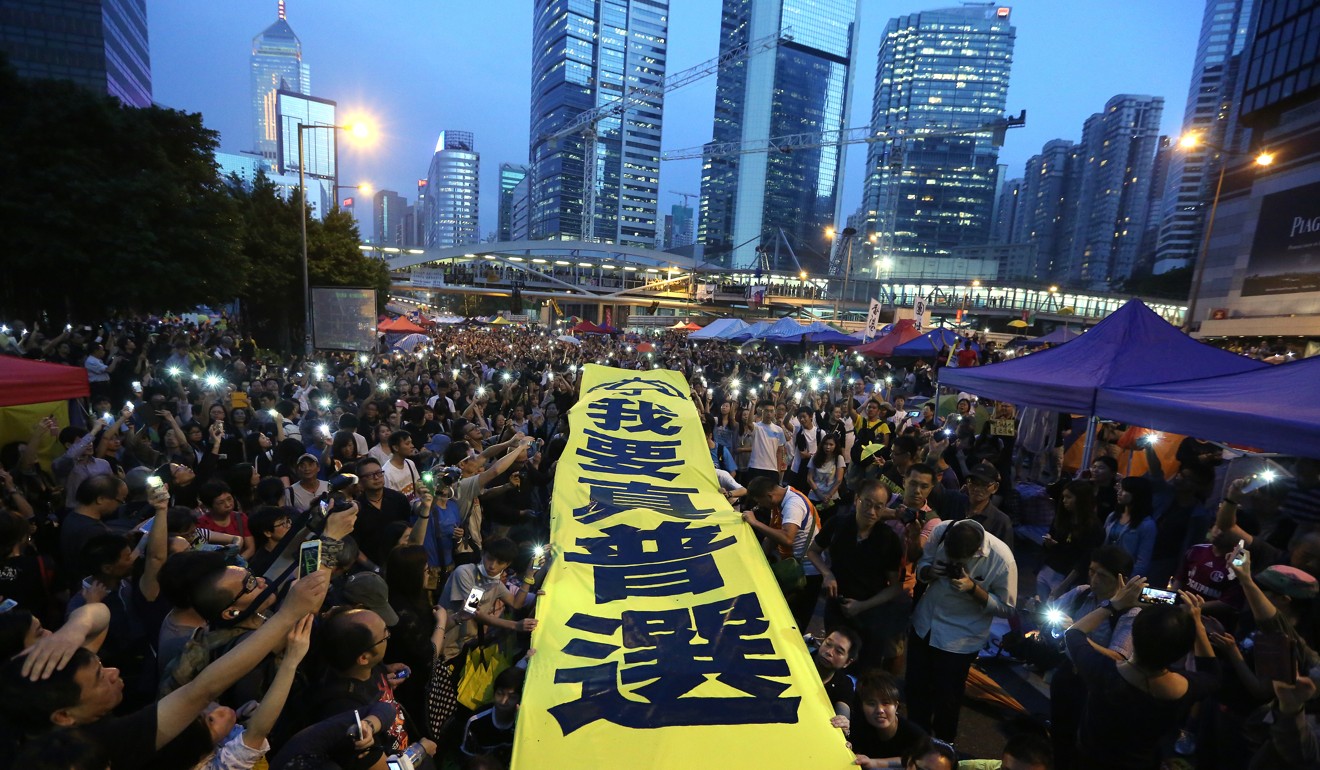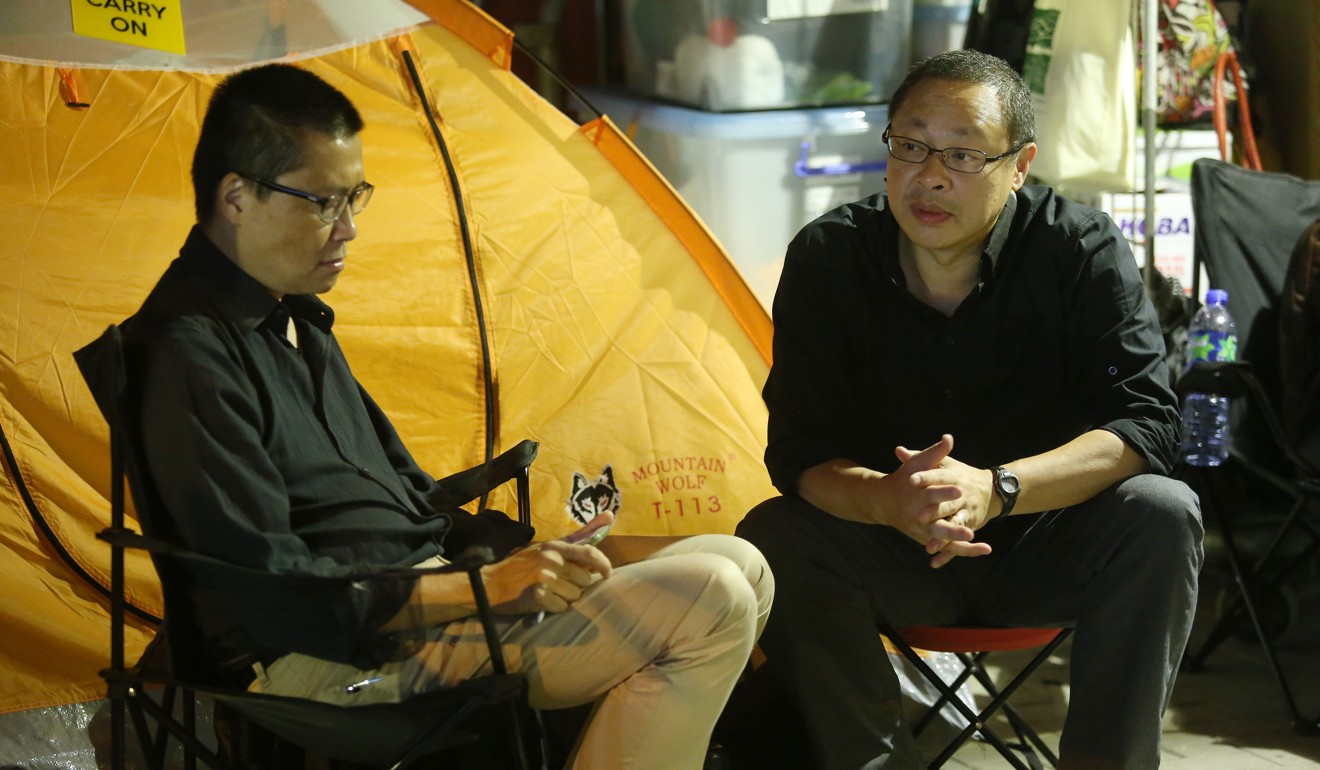
Occupy co-leader Chan Kin-man ran towards the fight as others fled, but now he struggles to tell Hong Kong’s young not to leave as China’s grip on city tightens
- Academic returned to city in 1993 determined to be part of push for democracy
- Now, 25 years later, if found guilty he faces a lengthy prison sentence for challenging the Chinese
In 1993, Chan Kin-man returned to Hong Kong as thousands of his fellow countrymen and women left ahead of the city’s handover to China.
The then 34-year-old doctoral student in sociology at Yale University rejected his teacher’s advice to advance his career in the United States, because he saw it as his responsibility to fight for democracy when Hongkongers finally got the chance to rule the city themselves in 1997.
The young scholar joined his alma mater, Chinese University, as an assistant lecturer that year, gradually rose through the ranks over the next 25 years, and became one of the city’s most outspoken scholars on the democratic movement.

He, alongside two other co-founders, faces three charges related to public nuisance. Each charge carries a maximum sentence of seven years in jail.
“There are so many uncertainties, and it is impossible to schedule the classes [for the next semester]. I have no choice but to leave early,” Chan told the Post as he started to clear the stacks of books in his office. “But I am very calm.”
Chan used to aspire to become a full professor, who would then strike a balance between teaching, research and social participation. But his grand plan was disrupted soon after he was tenured as an associate professor in the late 1990s, when he received a call from Reverend Chu Yiu-ming, whom he later co-led the Occupy sit-ins with.
Fourth Occupy protester, 72, jailed over 2014 injunction violation
However, Chan said his active social participation was only part of the reason he no longer aimed for the professor title.
“I was also unhappy with the rules of the game,” he said, which included overemphasis on publishing articles in top American journals.
“I would rather spend my time penning Chinese articles and books which could influence China.”
Those same rules make Chan fear there will only be fewer scholars in the future who care about Hong Kong affairs, and bother to participate in movements for social change.
“The assessment mechanism in Hong Kong has essentially discouraged scholars from focusing on local issues, which have a small market,” he said. “They would rather work on topics related to China, or something purely theoretical.
“People always ask me whether it was the political oppression that discouraged academics from participating in social movement. I don’t think that’s the case – the schools’ obsession with rankings are enough to kill a lot of initiatives.”
Apart from the change in academia over the years, Chan has witnessed the sweeping transformation of the country.
Shake off the colonial shackles – don’t let democracy be the only measure of success
An expert on civil society, he has been offering regular training to non-governmental organisations since 2000, helping establish foundations and teaching in universities – until 2013, a year before Occupy.
Only in the darkness can you see the stars
“I’m not in an antagonistic relationship with the officials. Some of them might feel uncomfortable, but they won’t rule out my contribution to China.”
“It was a turning point of my life,” Chan said. “But, in hindsight, I believe there wasn’t much room for my work in China anyway, even if I had not advocated the Occupy movement.”
Chan said he had no plans for any post-trial future, and believed there could still be positive meaning to his life, and the city’s democratic movement, even if he were sent to jail.
“It could be an encouragement to many others, as long as I am not destroyed by the imprisonment,” he said.

The Occupy movement failed to change Beijing’s stance on democracy. It left behind a widespread sense of helplessness and hopelessness in society, as reflected in the growing number of people moving abroad. Among them were some of Chan’s students, who he described as the “finest” people.
“I used to tell others that I would not leave Hong Kong in 1993,” he said. “I feel sad today as I find it hard for me to convince others not to leave the city, and hang on for the fight.
“I could no longer spell out the direction which could lead us to universal suffrage amid the oppression.
“But, perhaps the most meaningful chapter of your life is when you fight against adversity. Only in the darkness can you see the stars.”

